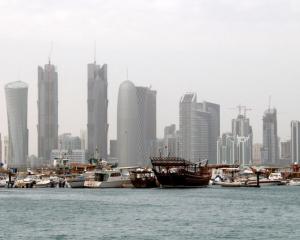Tantawi's inclusion in Prime Minister Hisham Kandil's cabinet was widely expected, but underlined the emerging power balance between a civilian president from a once banned Islamist group and the generals who removed Hosni Mubarak from power.
"Do we start from zero? For sure, no," Kandil said during a news conference. "There has been serious and dedicated work in the past period by previous governments that we must build on."
Besides its inclusion of Tantawi - Mubarak's defence minister for two decades - the new administration drew heavily on senior level bureaucrats who ran government in Mubarak's days.
Outgoing Prime Minister Kamal al-Ganzouri was even named an advisor to Mursi.
The inclusion of at least four members of the Muslim Brotherhood represented a notable break with the past, however. One was appointed as information minister, putting the group in charge of a powerful institution that oversees Egyptian state TV.
"We are confronted by a continuation of the system of government of Hosni Mubarak, with new faces from the second and third tier of the bureaucracy, and some members of the Muslim Brotherhood," said Nabil Abdel Fattah, a political analyst. "It reflects the strength of the bureaucracy and military," he said.
Kandil was himself a little-known technocrat until he was named as prime minister, tasked with handling problems including a sickly economy and high rates of crime - issues that have generated an atmosphere of crisis among Egyptians.
While the cabinet faced criticism in some quarters, the stock market gave it a tentative nod of approval, climbing for a second day on Thursday on hopes that the well qualified technocrats picked for the major economic portfolios are able.
Mumtaz al-Saeed, finance minister in the Ganzouri cabinet, kept his post, while the ministries of investment and oil, major economic portfolios, were handed to top-level state employees.
Kandil faces a looming balance of payments crisis and high state borrowing costs, factors which analysts say discouraged economists and bankers approached for the job of prime minister from taking the post, prolonging the wait for a new cabinet.
"The least that can be said about the coming period is that it is not going to be easy," said Kandil, who held the post of irrigation minister in the Ganzouri cabinet. Critics say he lacks the economic experience for the job.
He said he would meet Cabinet members on Saturday to discuss the next steps on seeking an International Monetary Fund loan, which economists say would help Egypt handle some of its economic troubles and restore investor confidence.
The new interior minister was named as Ahmed Gamal el-Din, a career policeman like those who held the job under Mubarak.ž Foreign Minister Mohamed Kamel Amr also kept his position.
Sworn in on June 30, Mursi has struggled to stamp his authority over government, exposing his group to ever harsher criticism from voters who will probably head to the polls again later this year to elect a parliament to replace the Brotherhood-led one dissolved in June by the generals.
Mursi's choice of prime minister has generated more criticism. Non-Islamists who supported his presidential bid have accused him of acting unilaterally and failing to build the consensus he promised, though some parties refused to join his cabinet.
"It seems that there is domination by one party so far, and no real partnership," Hamdeen Sabahy, a leftist who came third in the first round of the presidential election, said in a statement issued by his office.
Speculation has swirled around Kandil's political affiliations. Local press reports have said he has close Brotherhood ties, though he says he is an independent. His cabinet of 35 ministers includes two women, one of whom is a Coptic Christian.
In a gesture to the ultra orthodox Salafi Islamist movement, a Salafi was named as minister of religious endowments.
The choice of Talat Afifi, a professor at Al-Azhar University and a member of a Salafi charitable organisation, appeared to be a last-minute change of heart as a different candidate had been named on Wednesday.
The Nour Party, the Salafi group that came second to the Brotherhood in the last parliamentary elections, said it had turned down the environment ministry because the offer of a single portfolio fell short of what it was seeking.










